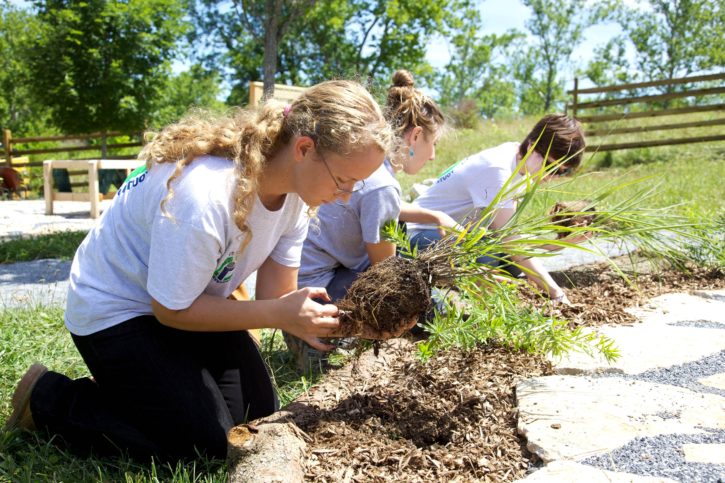Sustainable Gardening, Tips for Beginners

Sustainable Gardening Practices for Beginners: A Green Thumb's Guide
So, you've decided to dive into the world of gardening, huh? That's fantastic! But hold on a sec, let's make sure we're doing this right. We're not just talking about growing a few tomatoes here, we're talking about sustainable gardening practices that won't cost the Earth. Let's get started!
Why Sustainable Gardening?
Before we dive into the nitty-gritty, let's talk about why sustainable gardening matters. Imagine your garden as a tiny ecosystem. Every action you take has a ripple effect, affecting the soil, the plants, the wildlife, and even the wider environment. By adopting sustainable practices, you're helping to preserve natural resources, reduce waste, and create a healthier world. Sounds good, right? Let's break it down.
Understanding Organic Gardening
Organic gardening is like giving your plants a healthy, organic meal. It's all about using natural methods to grow plants without harming the environment. No synthetic fertilizers, pesticides, or genetically modified organisms (GMOs) here. Instead, we're talking about composting, crop rotation, and encouraging beneficial insects. It's like a big, green circle of life.
The Benefits of Organic Gardening
- Healthier Soil: Organic methods improve soil structure and fertility, making it a better home for your plants.
- Reduced Pollution: By avoiding chemicals, you're reducing runoff into waterways and protecting local wildlife.
- Pest Resistance: Organic gardens often have a higher level of biodiversity, which can help control pests naturally.
Water Conservation: The Liquid Gold
Water is life, and it's also a precious resource. Did you know that outdoor water use accounts for a significant portion of residential water consumption? Let's change that.
Smart Watering Techniques
- Mulching: A layer of organic material (like straw or wood chips) on the soil surface can reduce evaporation and suppress weeds.
- Drip Irrigation: This delivers water directly to the roots, minimizing evaporation and waste.
- Rainwater Harvesting: Collect rainwater in barrels or cisterns for later use. It's free, and it's great for your plants!
Composting: Turning Waste into Wealth
Composting is like giving your garden a big, nutrient-rich hug. It's all about turning kitchen scraps and yard waste into a rich, fertile soil amendment. Here's how to get started:
The Art of Composting
- Choose a Bin: You can buy one or make your own from wire mesh or pallets.
- Add Ingredients: Alternate layers of 'greens' (nitrogen-rich materials like fruit scraps and coffee grounds) and 'browns' (carbon-rich materials like dry leaves and cardboard).
- Maintain the Pile: Keep it moist (like a wrung-out sponge) and turn it occasionally to aerate.
- Harvest: In a few months, you'll have beautiful, dark, crumbly compost ready to use.
Native Plants: The Local Heroes
Native plants are like the A-team of your garden. They're adapted to your local climate and soil, so they need less water and care. Plus, they provide habitat and food for local wildlife. It's a win-win.
Choosing Native Plants
- Research: Find out which plants are native to your area. Your local nursery or extension service can help.
- Consider Size and Shape: Make sure your chosen plants will fit in your garden and complement your design.
- Check Bloom Times: Aim for a variety of bloom times to ensure continuous color and interest.
Soil Health: The Backbone of Your Garden
Healthy soil is the foundation of a thriving garden. It's a living ecosystem, teeming with microorganisms that help plants grow. Let's treat it right.
Building Healthy Soil
- Test Your Soil: Find out what your soil needs by getting a professional test. You can find more information on the EPA's soil health page.
- Add Organic Matter: Compost, manure, and cover crops can all help improve soil structure and fertility.
- Mulch: A layer of organic material on the soil surface can protect it from erosion, regulate temperature, and add nutrients as it breaks down.
Sustainable Gardening: It's a Journey
Remember, sustainable gardening is a journey, not a destination. It's about making choices that protect and enhance the environment, one plant at a time. So, grab your gloves, get out there, and start making a difference.
FAQs
-
Q: Can I still have a beautiful garden if I go organic?
- A: Absolutely! Organic gardens can be just as beautiful as any other. It's all about design and choosing the right plants.
-
Q: How do I know if a plant is native to my area?
- A: Check with your local nursery, extension service, or native plant society. They can provide lists and advice.
-
Q: Isn't composting kind of smelly?
- A: Not if you do it right! A well-managed compost pile should have little to no odor.
-
Q: Can I still have a water feature if I'm trying to conserve water?
- A: Yes, but make sure it's a recirculating system to minimize water waste.
-
Q: Where can I learn more about sustainable gardening?
- A: There are plenty of resources online, and many local nurseries and extension services offer workshops and classes.
0 Response to " Sustainable Gardening, Tips for Beginners"
Post a Comment